A yarn about my granda
When grief comes with a side of emigrant's guilt.
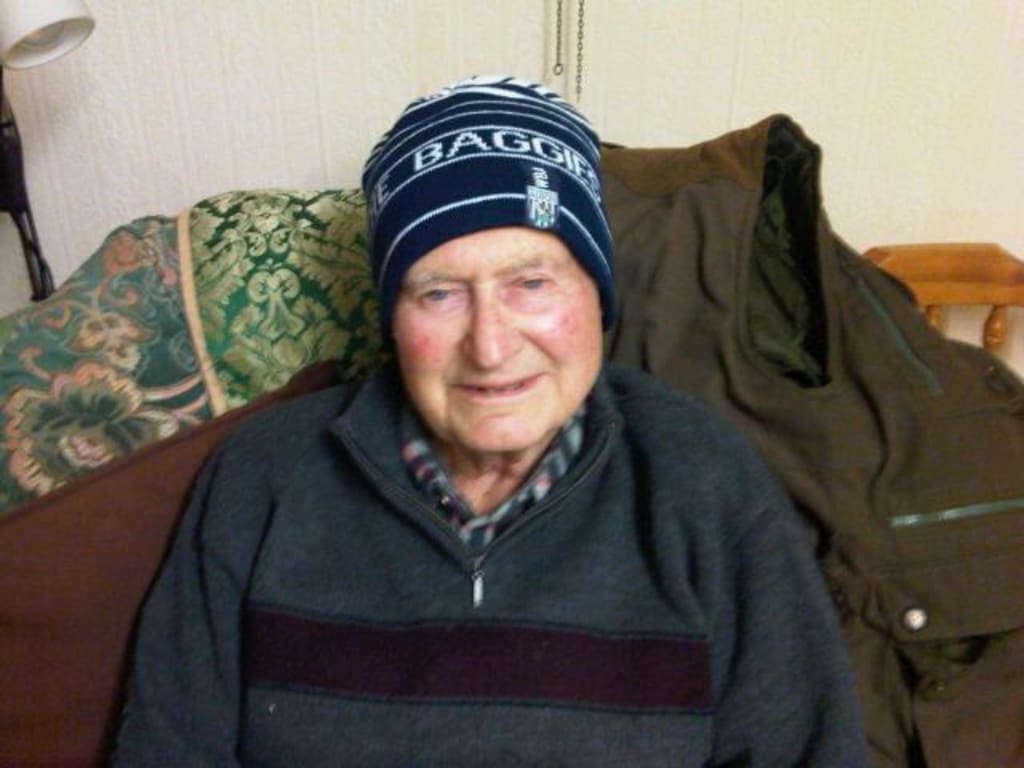
Granda wasn’t a huge football fan. Not in the sense that he would go and stand on terraces every week, singing and chanting, but he had a real interest in the stories and narrative around the sport.
He understood the role it played in communities, the drama it created and the real-life stories that surrounded the players off the field.
William Francis Mooney had worked in England when he was younger.
He was there at the time of the Munich air disaster, in which 23 people died when the plane carrying the Manchester United team crashed in 1958.
As a young boy he would hand me books on the subject, point out any articles that were in the papers about the disaster and tell us the tale of the human reaction that played out on the ground.
It may have been this that resulted in my brief flirtation with the team on what I would now see as the wrong side of the Pennines, but Granda’s team was West Bromich Albion.
The team spent the 1990s in the English league’s lower divisons, which meant they were almost invisible to a child in single digits, but ‘The Baggies’ stayed with me because of him.
When I moved to England myself in August 2012, Granda had plenty of advice, as he always had, and a yarn or two to go with it.
I bought him the Baggies hat in November 2012 when he turned 86, and I was sent the photo by my aunt when he received it in the post.
That was his last birthday.
It was around Christmas when we first became aware that Granda wasn’t well. Cancer. The news didn’t really resonate initially, and took hold gradually over the next few months.
Nana, my great aunt, would send the weekly papers — candidly including the jobs section of the Irish News — and then ring to make sure they’d arrived.
During the phone calls we got updates on, along with frequent messages from my mum. The cancer was progressing.
I’d find myself lying awake at night, staring at the ceiling in the half-light of our tiny bedroom in Manchester. Some nights I would cry.
On other occasions I would stare out on the apartment block’s grass courtyard, bathed in orange light outside our window.
In a city of millions, my mind was drawn to a townland of dozens. To a hospital in the next town. To my family living every day at home.
The guilt was crippling. The creeping helplessness of being hundreds of miles away as a man who had shaped much of my life slipped slowly away.
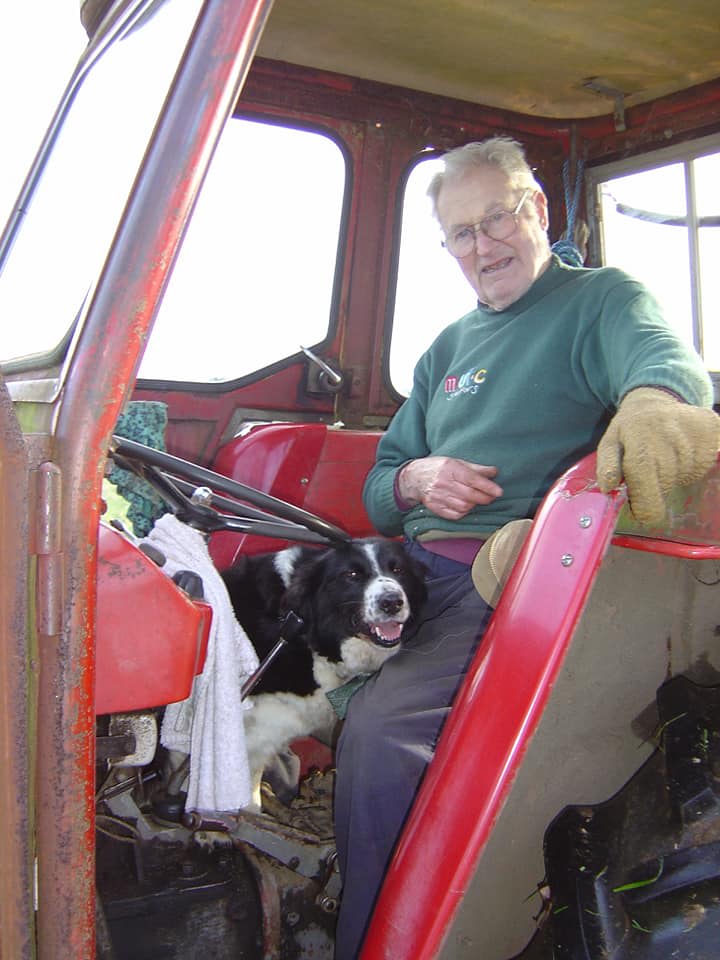
I got home during the holidays. February mid-term. May mid-term. At times the medication made conversation difficult, and Granda’s hearing hadn’t been great.
Sometimes though, no conversation was needed. It was simply enough to be in his company. Often he would look and smile the way he always had.
Sometimes words diminish a moment.
Myself and my wife Colleen got engaged in May 2013, and were delighted to share the news with him, despite the tinge of sadness of knowing he wouldn’t be there to share in the day.
When I eventually got home from the summer, Granda was in Causeway Hospital.
I went down with my mum, and although heavily medicated, he was sitting up, alert and in good form.
The medication meant his recognition of me was fleeting, and mammy had to jog his memory, but he was holding court in his own way.
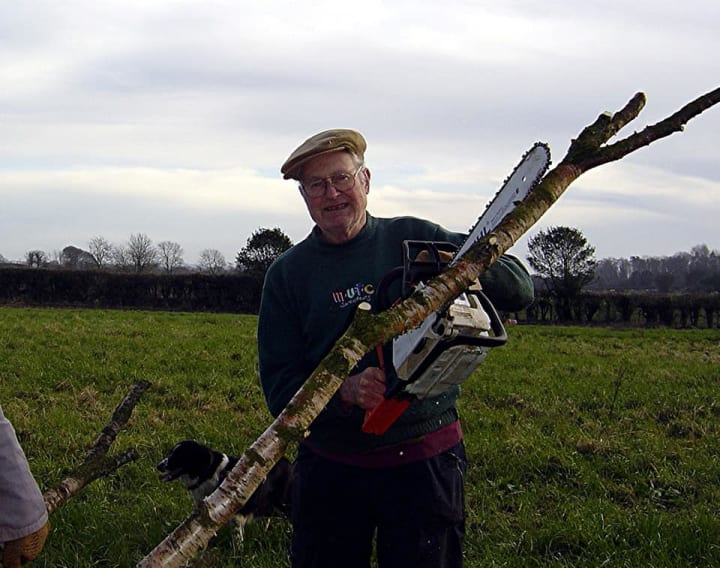
Occasionally he would break into song, reciting lines of ‘The Leaving of Liverpool’ to much amusement on the ward.
Granda had been allowed home during the summer once a care package had been agreed.
He was more lucid now, telling us stories that would be repeated over and over, but we savoured every syllable, every laugh, every smile.
Sometimes he would doze off, and we’d all sit there in silence, willing our minds to grip the memories tightly.
The smell of the dinner being cooked in the kitchen behind him. The sliding of Granny and Nana’s slippers on the cream tiles in the kitchen. The jingle of the one o’clock news from the television.
It was like every summer we’d spent as children in the house, the back door open, the tractor parked in the yard. Sun peeking through the sycamore trees.
Then the time came to leave. The Irish Sea beckoned.
I remember vividly the last time I saw Granda. We’d stalled as long as we could, drinking tea, talking, just being.
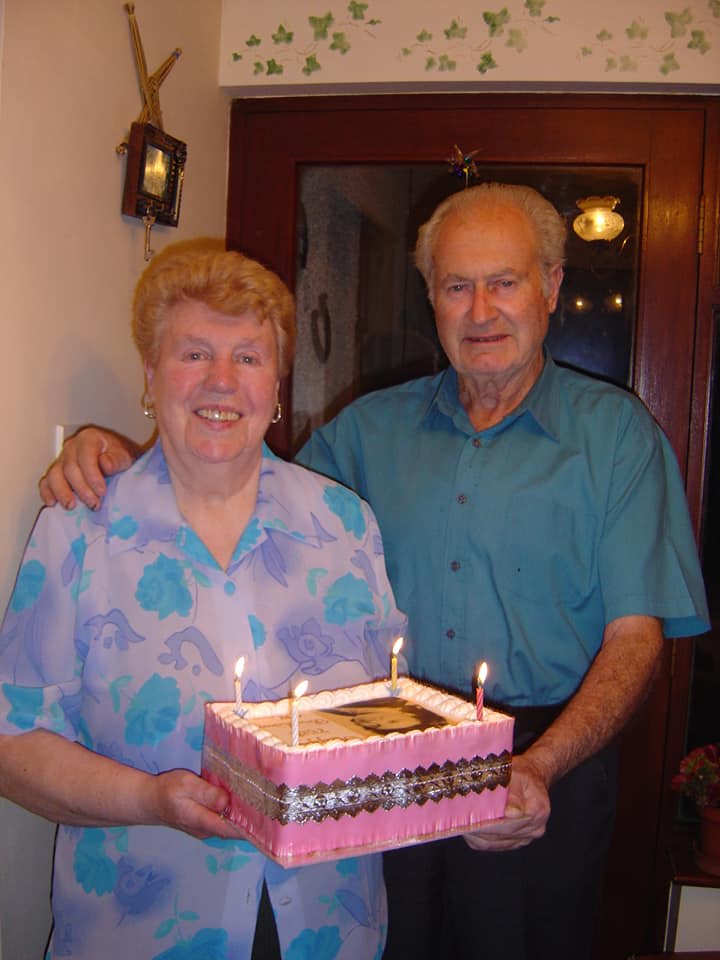
We would rarely have hugged, but as I took his hand, we did. I hugged him and when we broke I looked into his eyes and saw something I’d never seen in him before.
I saw fear in the eyes of the strongest man I’d known.
I held his hand for what seemed like eternity and we looked into each other’s eyes, knowing this was the last time we would see each other.
I choked back tears as Colleen and I got into the car. Every emotion was heightened.
The trees that surrounded the house seemed to swish that bit harder. The crows crew louder above them.
I felt every shifting gravel stone under the tyres as I drove out the lane, glancing in the rear view mirror as the gable wall disappeared from view.
About a fortnight later I found myself in St John’s Church, Chorlton. We had been on a walk around and had called in for a look.
I sat on the gallery as Colleen took a wander about, staring at the ceiling. I’m not particularly religious, and I don’t know if it was prayer or not, but I sat in silence and just hoped he wouldn’t suffer.
He died on October 21 2013.
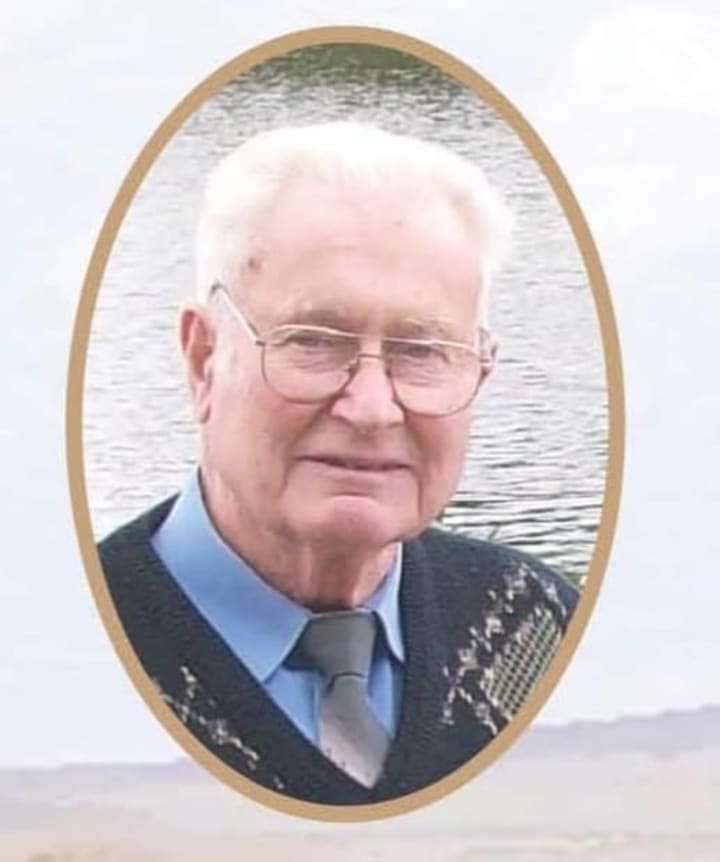
I got the phone call when I was marking homework. I even remember the child’s name — Evie Chuwen — whose book I was marking.
My dad’s number flashed on the screen and I knew already.
I got the ferry home the next day; the long boat from Liverpool to Belfast, and spent much of the journey in a cabin alone with my thoughts.
When I closed my eyes, I was on a swing in the shed at the Lowertown, Granda’s farm, made from rope and old sacks, the rhythmic squeak marking a quest to reach the shed’s ceiling.
I was back on the living room floor, rolling around the brown and cream felt tiles as Granda’s slipper-clad feet flicked a football in my direction for me to save.
I was glowing with pride in a Primary 2 classroom as he showed my classmates his treasury of artefacts, items he would later show proudly to my wife during our early years together.
I was walking with him around the graveyard, as he told me the story behind every gravestone, slipping me a sweet on the way round.
I was in a field, picking potatoes, eating sandwiches with dirty hands, into which a note would be pressed at the end of the day for the labour.
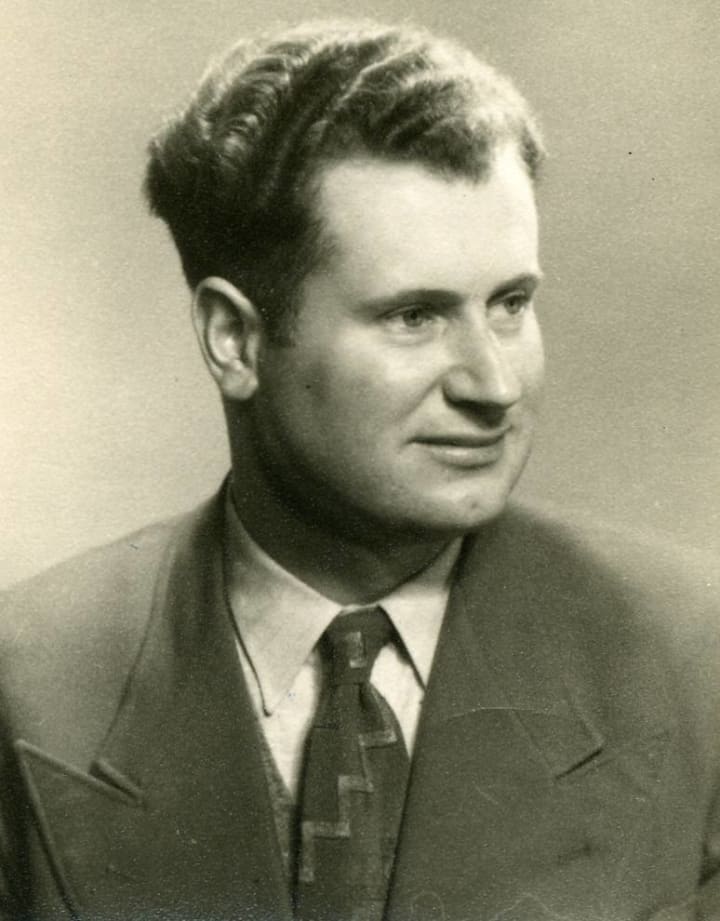
I was sailing up Tamlaght Road on the back of the link box, the white lines of the road racing past as we held on to the back of the tractor.
I could feel the solid weight of another book being pressed into my hand, knowledge, history and the art of storytelling being passed on with every word, his neatly penned signature adorning its inner cover.
I recalled the pride of walking off the pitch at Dreen on the only occasion he was able to watch me playing football, a Pat Hendrie game against Ballerin at a sun-kissed club fun day in 2003.
I was opening the door of his old Lada car outside Mullaghan’s Bar, where Granda would have a pint every Saturday with my uncle, and where he would pick me up when I was staying in after school.
I was standing in inches of snow just three years before his death, helping him change one of the tractor wheels as the big freeze took hold a few days before Christmas.
But mostly, I was back in the living room, holding his hand and staring into his eyes for that last time, glad to have had that moment but reeling with emigrant’s guilt.
By the time I arrived at the house that evening, the wake was already underway. There was the usual flurry of sandwiches, stew and tea and the house was packed.
When I finally reached his room, the room to which he had sent us as children to count out change to take with us as a treat, there he was.
Still. Serene. Peaceful.
As is tradition, the body of the deceased is never left alone from death to burial. The following evening, after the visiting had died down, I was left alone with Granda as the small hours approached.
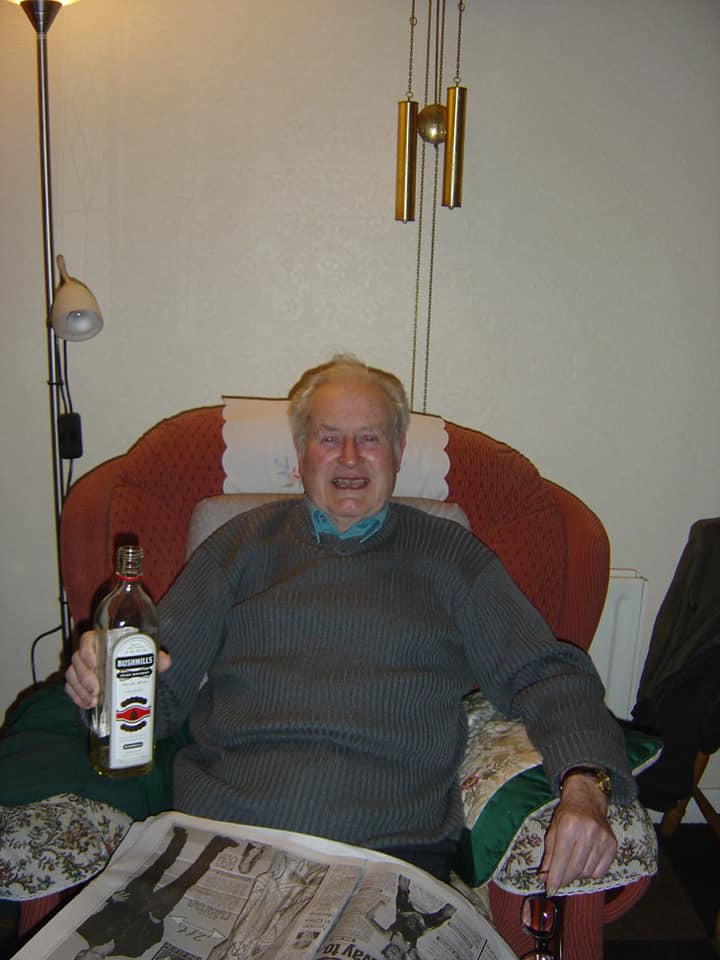
Downstairs, a few of the neighbours sat around drinking whiskey. Their muted conversation floated up the stairs, punctuated by laughter as they shared anecdotes of his life.
In the dim light, with the rain and darkness of October outside, I simply told him I loved him.
Watching Granny kissing him goodbye before the coffin was brought downstairs for his final journey to the chapel was the hardest moment.
She carried herself with dignity and love as we laid Granda to rest in the graveyard he had walked his grandchildren around for years.
When Colleen and I lost our daughter Fionnuala in 2016, spinning in grief, we decided we would bury her with Granda in Rasharkin.
Some days I’ll take a run to the Lowertown when no one else is there.
It looks different now, as everything does with the passage of time, but linger long enough and for a fleeting moment, you can hear him whistling for Lark, the dog, and calling us to the tractor.
Granda loved poetry, and would often — completely out of the blue — recite obscure lines that filled us with curiosity.
One of his favourites was William Wordsworth’s ‘I Wandered Lonely As a Cloud’ the last verse of which makes me smile.
I often find myself reaching for his memory when I’m not in good form, or when things are tough, and I’ll remember things he said, but mostly how he made me feel.
“And then my heart with pleasure fills
"And dances with the daffodils.”
About the Creator
Liam Tunney
Journalist with The Belfast Telegraph.


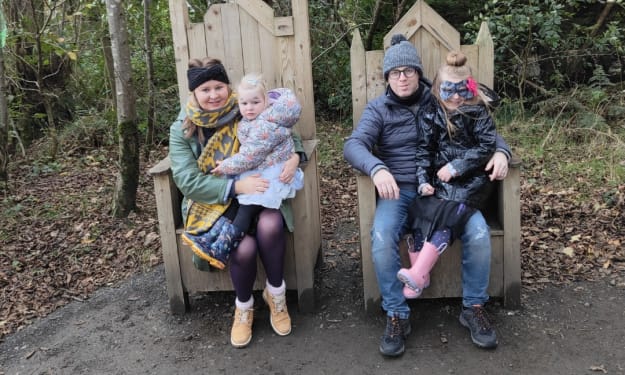

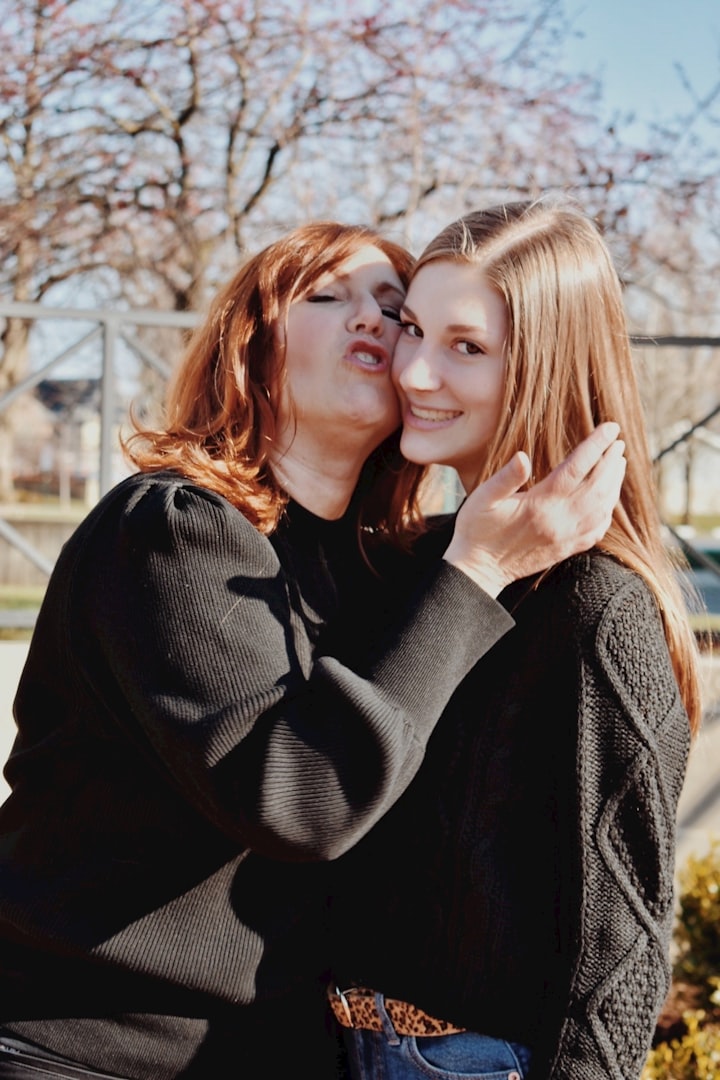

Comments
There are no comments for this story
Be the first to respond and start the conversation.